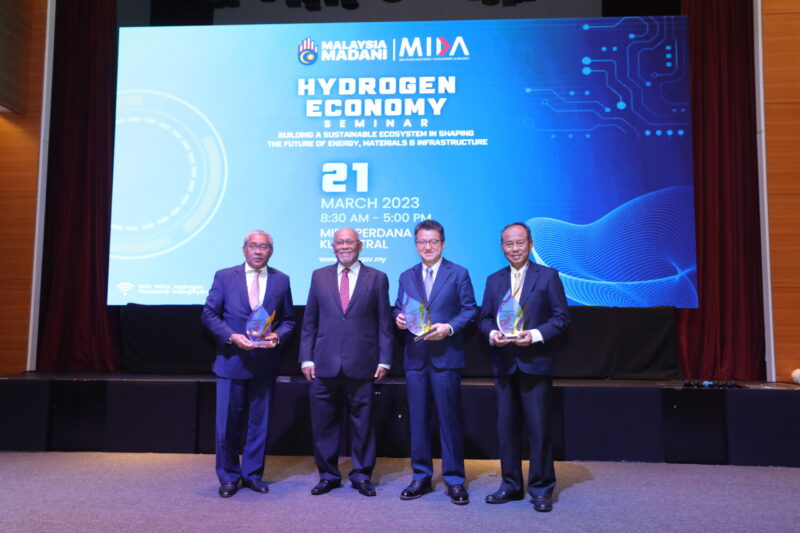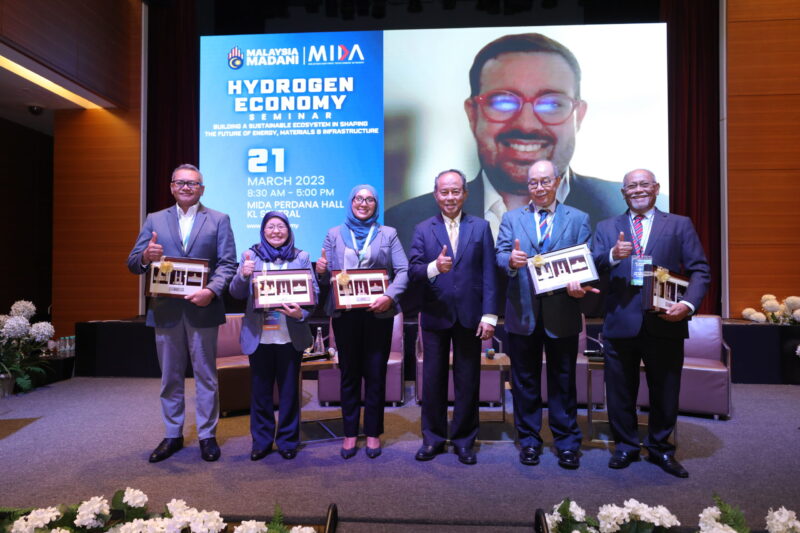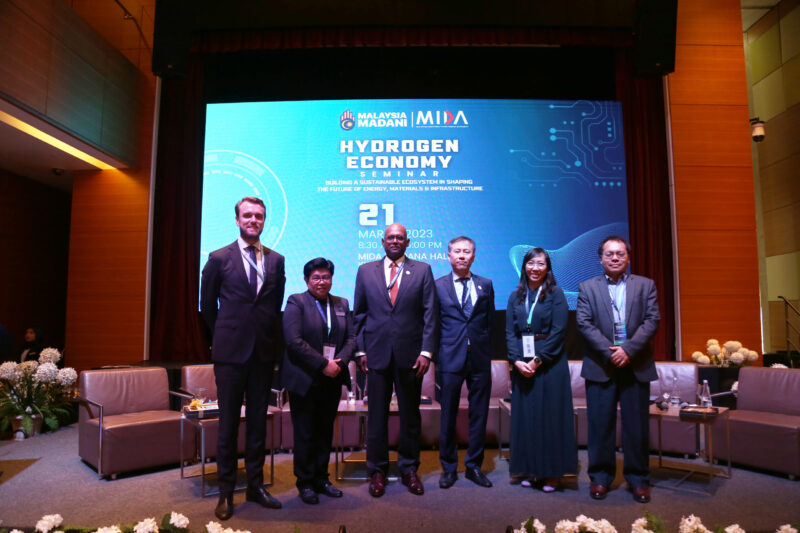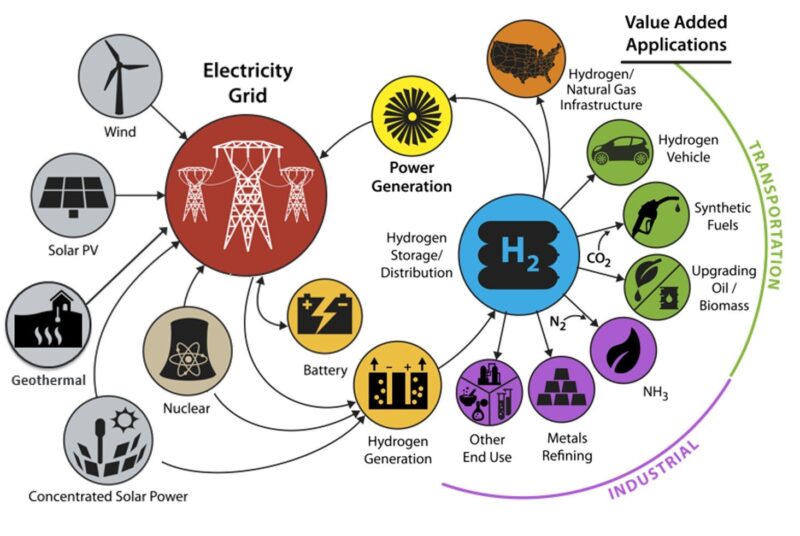
This site
is mobile
responsive

The Malaysian Investment Development Authority (MIDA) successfully organised an inaugural seminar with the theme ‘Hydrogen Economy – Building a Sustainable Ecosystem in Shaping the Future of Energy, Materials & Infrastructure’ at MIDA Sentral, Kuala Lumpur on 21 March 2023. This seminar aimed to explore the significant potential of hydrogen technology and its ability to transform Malaysia’s energy, materials, and infrastructure sectors.
The event was graced by the Deputy Minister of Investment, Trade and Industry (MITI), YB Liew Chin Tong, and featured a stellar line-up of speakers, including experts in hydrogen technology such as YBhg. Prof. Dato’ Ir. Dr. Wan Ramli Wan Daud and YBhg. Prof. Dato. Ir. Dr. A Bakar Jaafar. The seminar also had a virtual guest, Mr. Mikaa Mered, a Hydrogen Task Force member and Green Hydrogen Ambassador with the International Association for Hydrogen Energy (IAHE), who joined in from Marseille, France.
One of the highlights of the seminar was the launch of the Malaysian Association of Hydrogen Energy (MAHE) by YB Liew Chin Tong. This association serves as a platform to synergise efforts towards developing a Malaysian Hydrogen Energy Blueprint, establishing academia-industry project collaborations, developing hydrogen project demonstrations, undertaking consultations for knowledge and technology transfers, and planning for human capital development.


The Potential of Hydrogen
The potential of hydrogen technology to combat climate change has been making waves worldwide, and Malaysia is no exception. As a clean and versatile energy source, hydrogen can be used across multiple sectors, including transportation and electricity generation. Recognising its importance, Malaysia is actively exploring ways to integrate hydrogen into its energy mix.
One key way that hydrogen can support a sustainable future is through the use of green hydrogen, which is produced using renewable energy. This form of hydrogen can help decarbonise industries that are difficult to tackle, such as cement, steel, and transportation. By aligning with the global commitment under the Paris Agreement to reduce carbon emissions, Malaysia is demonstrating its dedication to tackling climate change.
Malaysia’s Commitment Towards Climate Change
As part of its efforts to meet its sustainability goals and tackle climate change, Malaysia has updated its Nationally Determined Contribution under the Paris Agreement. The country has pledged to reduce its economy-wide carbon intensity by 45% by 2030 compared to 2005 levels. To achieve this goal, the government has projected a significant increase in the share of renewable energy in the national installed capacity mix, reaching 31% or 12.9 GW in 2025, 40% or 18 GW in 2035 and targeted to reach 70% in 2050.
By embracing hydrogen technology and committing to sustainable practices, Malaysia is taking the lead in building a better future for everyone.
Malaysia’s National Hydrogen Economy and Technology Roadmap
It is essential to have a roadmap for the hydrogen economy to address challenges and seize opportunities. Malaysia’s National Nanotechnology Centre, under the Ministry of Science, Technology and Innovation, has initiated the National Hydrogen Economy and Technology Roadmap (HETR), aimed at positioning Malaysia as a leading Hydrogen Economy Country by 2050. This initiative is based on five main factors:-
With the establishment of the National Hydrogen Economy and Technology Roadmap, Malaysia joins 35 other countries that have launched their National Hydrogen Strategies. To unlock the hydrogen economy, it is crucial to attract investments in the value chain including hydrogen production, distribution and application. MITI and MIDA are committed to promoting potential FDI and DDI in these quality projects and provide comprehensive support and facilitation to investors such as SEDC Energy Sdn. Bhd. and other relevant stakeholders which undertake green hydrogen and related projects in Sarawak.
MITI and MIDA will actively engage relevant stakeholders to identify the right incentives and facilities, such as tax breaks, capital allowances, financial assistance, and R&D needed to attract investments. Additionally, continuous efforts will also be undertaken to promote collaboration between academia/research institutions, industries, and government agencies to strengthen talent development initiatives and foster advanced R&D, emerging technologies, and innovation in Malaysia.
Diagram 1: The Hydrogen Economy Value Chain

Source: U.S. Department of Energy Hydrogen Program